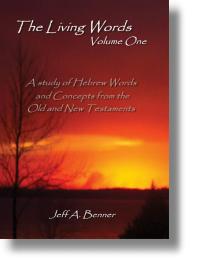Lord, to whom shall we go? You have the words of Eternal Life. (John 6:68)
The original authors of the Bible, and the original readers of their documents, lived in a world very different from our own. Their language and perspective was very different from ours and if we are going to read their texts we must read it from their perspective, not from our modern twenty-first century perspective. Our own concepts of blessings, praises, and wisdom (all abstract in thought) would be completely foreign to the ancient Hebrews. Instead, they would easily associate with such ideas as kneeling down in respect, following a star and eating cheese (all concrete in thought).
If you're interested in learning more about the original Hebraic meaning of the words of Bible, and are willing to change your own perspectives of the Bible, then open the files below and get ready for a new and refreshing approach to Biblical studies.
The Three Keys
A language is closely tied to the culture of those who speak the language. In the case of the Hebrews who were a nomadic people of the Near East, their language is closely connected to their nomadic culture. Each Hebrew word describes an action that can be seen in the nomadic journeys of the Hebrews through the wilderness.
All modern day translations of the Bible are written from a very westernized perspective and has erased the original Hebraic, Eastern, perspective of the original words in the text. Once the Hebraicness of the text is restored a common theme can be found throughout the Bible rising to the surface - our nomadic migration through the wilderness of life.
It is simply assumed by most people that everyone everywhere thinks in pretty much the same manner. This could not be farther from the truth. In fact, the thinking processes of different cultures are as different as day is from night. In this book we will be examining Hebrew words and ideas so that we can better understand how the mind of the Hebrew works. Understanding how the Ancient Hebrew thought is crucial in proper Biblical understanding. If we are to interpret the Biblical text according to our way of thinking then the interpretation will be contaminated with modern Greco-Roman thinking."
In my many years of research into the language of the Bible I have discovered three keys to proper interpretation of the words and ideas within the text.
Culture
The Hebrew language, as is the case with every language, is closely tied to the culture the speakers and writers belong too. When reading the Bible, whether in Hebrew, English or any other language, it is essential that it be read through the eyes and mind of the Hebrew culture and not ones own culture. To illustrate this lets look at Isaiah 40:22.
It is he... that stretches out the heavens as a curtain
From our own culture we could conclude that this is a reference to the creation of the stars which we know to be giant balls of burning gas billions of miles from us. But, this perspective, as accurate as it may be, must be ignored and instead understood from Isaiah's perspective of the heavens. Inside the goat hair tent of the Hebrews the roof is black but the gaps between some of the fibers of the material allow for pinholes of light to penetrate through giving the appearance of stars in the black sky. For this reason, the Hebrews saw the night sky as God's tent stretched out over the world, his family.
Action
Our modern languages are the product of a Greco-Roman world where abstract words are prolific. An abstract is a word or thought that cannot be related to one of the five senses; hearing, sight, touch, smell and taste. However, each Hebrew word is related to a concrete idea, a substance of action. A good illustration of the differences is the word anger which, from a modern perspective, is an abstract idea. The Hebrew word for anger is אף aph [639] but literally means "a flaring of the nostrils in anger," a substance of action. In fact, the word אף aph [639] is also the same Hebrew word for the nose. Throughout this book you will be challenged to cease thinking abstractly and instead open your mind to the concrete meaning of words as they were understood from an Hebraic perspective.
Function
Hebrew thought is more concerned with function whereas we, and our Greco-Roman thought, are more concerned with appearance. When we read the Biblical text we are constantly creating a mental image of what the text is describing but the original author is not describing an image of appearance but an image of function.
and this is how you are to make it, the length of the vessel is three hundred cubits long, fifty cubits wide and thirty cubits high.
Is this description telling us what the ark looked like? Not at all, it is describing its function by telling us that this ark is very large and capable of transporting a very large load of animals.
When keeping these three keys in mind while reading the text you will begin to approach the Bible from a Hebrews perspective rather than from the Greek perspective we have all been taught since birth.
If you're ready let's dig deep into the soil of the Hebrew language and see if we can find the gems hidden with it.
Do you like what you're reading here? Join my guided learning path that will take you from a Bible reader to a translator.
|







